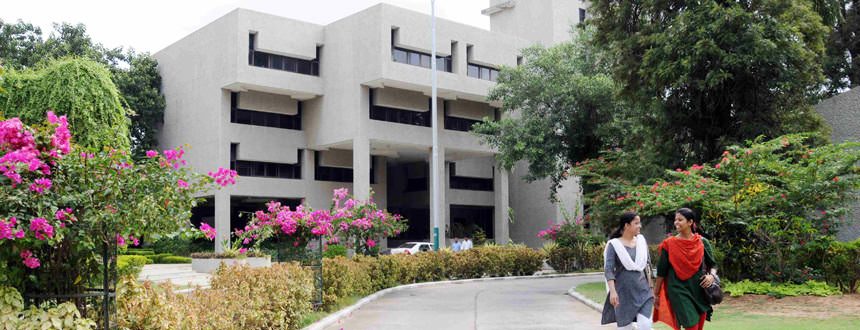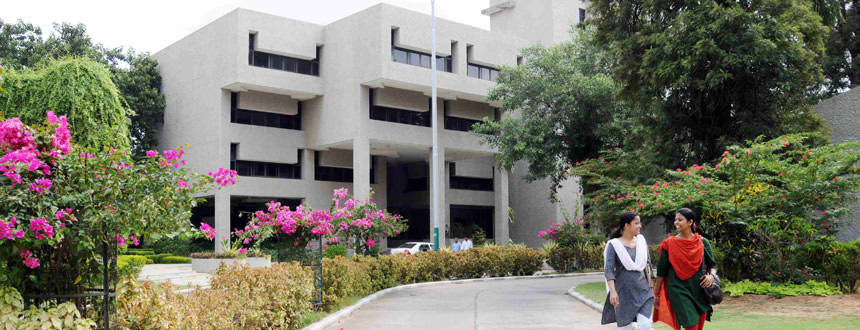Address by Dr Meenesh Shah, Chairman, NDDB at India Dairy Association's National Seminar on Role of Milk Products in Health and Disease Prevention - 12 September 2023
Indian Dairy Association (West Zone)’s National Seminar
on
Role of Milk Products in Health and Disease Prevention
12 September 2023
Address by Guest of Honour – Dr Meenesh Shah, Chairman, NDDB
Dr R.S. Sodhi, President, IDA
Dr V. Mohan, Chairman & Chief of Diabetology, MDRF, Chennai
Dr JB Prajapati, Chairman, IDA (West Zone)
Dr JV Parekh, Vice Chairman, IDA (West Zone)
Representatives of all the partnering institutes
Scientists, Experts participating in this National Seminar
It is indeed a pleasure to join you all today in this National Seminar on Role of Milk Products in Health and Disease Prevention being organised by IDA West Zone.
I would like to take this opportunity to compliment the IDA West Zone and the other partnering institutions for coming together and selecting this important topic for deliberations today.
I think more than 80 percent of the world’s population, or about 6 billion people, regularly consume milk and dairy products.
Why?
Dairy products are tasty, affordable, easily accessible and nutrient rich. Many people would struggle to meet their nutritional needs without the energy, proteins, vitamins and minerals that dairy products provide.
Milk and Ayurveda:
As far as our country is concerned, the tradition of cattle rearing and milk consumption is as ancient as civilization and culture of India. According to Ayurveda, milk is said to provide unique nutrition that cannot be provided by any other type of food.
Milk promotes ‘ojas’ a pure substance that is accumulated from properly digested food. “Ojas’’ brings strength, immunity, happiness and contentment. Milk when digested properly, nourishes all the tissues and promotes balanced emotions.
While Ayurveda describes 8 types of milk and each one of them has their unique characteristics, the pride of place has been given to cow milk of local breeds of India.
Cow milk is said to act as Rasayana and Ojovardhaka. Rasayana means the ability to act as immune booster and people consuming milk from indigenous breeds will have better disease resistance and less of digestive problems.
Apart from preventive and promotive properties, milk is also described as highly curative. The regular intake of milk is said to pacify all diseases and also slow down the ageing process.
Milk is naturally nutrient-rich
- Milk is a good source of several essential nutrients such as high-quality protein and a unique mix of slow- and fast- digesting proteins, the minerals calcium, phosphorus, potassium and iodine, and the vitamins B2 and B12.
- Milk is not a ‘high fat’ product. There is a range of lower fat (and lower calorie) options to suit different preferences or needs.
- Milk contains many natural bioactive components (e.g. specific fatty acids, peptides).
- Milk has a uniquely high internal biodiversity in its composition with more than 400 different fatty acids and more than 400 different proteins
- Milk provides many important nutrients that contribute to good health during all stage of life (from childhood to old age). From whole milk to fat-free and lactose-free milk, there is a range of wholesome and nutritious milk options to suit different preferences and needs.
Milk and Health
Sufficient scientific literature is available which suggest that milk can help with:
- Reducing the risk of obesity
- Making teeth healthy
- Fighting diseases
- Fighting depression
The role of milk and milk products in a healthy diet has been re-emphasized time to time by the global nutrition and science community.
In many countries’ dietary guidelines, the nutrient density of dairy products has been recognized as providing a unique variety of nutrients (nutrient profile) to the human diet. ‘Nutrient density’ is the ratio of the nutrient content to the total energy content of a specific food product.
Dairy foods are also excellent vehicles for fortification. In many countries, milk is fortified with vitamin A and/or D.
Milk is amenable to a variety of processes such as adjustment of its constituents (fat etc.), concentration/drying, acidification, fermentation, freezing, fractionation etc., thereby making it possible to manufacture a variety of products. Milk products are a great vehicle for probiotics. Thus, dairy industry can offer a range of choices to the consumer.
The myths associated with consumption of milk and dairy products, such as its perceived role in promoting breast cancer and asthma, have been busted with emergence of new scientific evidence alleviating the erstwhile fears associated with dairy consumption.
Scientific interventions towards development of functional and value-added dairy products are need of the hour as milk and milk products can play an active role in our lives in promoting Health and Preventing lifestyle diseases. Such products can provide health benefits to consumers, at the same time, improve the economy of the dairy industry.
Indian Dairy Industry should take necessary steps to promote R & D activities aimed at developing and promoting functional milk products with health benefits and disease prevention potential.
Milk and Nutrition
In the case of India, Milk is also important for meeting the nutritional needs of our growing young population. As per Census 2011, 472 million of our children are under age of 18 years which is about 40% of our population. 240 million of our population are students of 6-15 years age group.
So, you can see India is a fairly young country, and this also clearly establishes the need for programmes/policies for nutritional needs of this segment of our population, in which role of milk in terms of nutrition becomes important.
Milk is indispensable for a healthy body. Milk and dairy products are especially important for children and young people because they contain high amounts of protein, calcium, and vitamin D. These nutrients help build strong bones and reduce the risk of chronic diseases later in life.
Under the flagship Giftmilk Programme, NDDB Foundation for Nutrition (NFN) facilitates free distribution of 200 ml flavoured milk preferably fortified with Vitamin A & D, to Government school students at school premises on all working days.
NFN leverages the support of vast network of dairy cooperatives for supply of safe milk & milk products. Of the total beneficiaries, 50% are girls and 40% belong to SC/ST category from the marginalized areas of the country. Usually, the intervention districts fall under an ‘Aspirational District’ category.
NFN has supplied 1 crore 40 lakh units of Gift milk to about 484 government schools comprising of 1 lakh children.
We have encouraging results from GiftMilk Programme. We did a study to understand the impact of milk consumption on varied aspects for which following domains of study were selected:
- Socio-demographic profile
- Milk consumption habits
- Health profile including anthropometry and biochemical investigation
- Cognitive assessment- IQ and DQ
The major findings after two years of milk distribution proved the sustained benefits of regular milk consumption.
- Absenteeism decreased progressively in intervention schools (from 36.25% to 23.25 %)
- 72% of children had normal height in intervention vs. 64% normal height in control schools
- In cognitive domain, 24.1% children in intervention group had normal to superior IQ than 16.5% in control group.
NFN has initiated its intervention to curb the incidences of Malnutrition at Anganwadi level through its Shishu Sanjeevani Programme. Shishu Sanjeevani Programme has been designed for Anganwadi children aged between 4-6 years of age. First programme has been launched at Gadchiroli District of Maharashtra. Under the programme, 5000 anganwadi children of Aheri block of Gadchiroli is being covered.
Shishu Sanjeevani, is an energy dense fortified nutritional supplement developed by NDDB containing ghee and milk solids which can be easily consumed by children at anganwadi under the supervision of the anganwadi worker without additional efforts required. It is specially developed for children of 04-06 years.
The programme has received positive feedback from the ground regarding quality of the product, acceptance by children and improved attendance at Anganwadi levels in Aheri block of Gadchiroli.
I also share the concerns of the organisers regarding attempt to portray milk as nutritionally inferior to plant-based beverages.
Plant based beverages aim to mimick the composition of milk, however they consistently fall short of whole nutritional package that milk naturally provides.
Generally, they are:
- low in protein (except for beverages mainly based on soy and pea and some oat beverages);
- lower in quality protein compared to milk (except for soy beverages whose protein quality is the closest to milk) ;
- not a natural source of vitamins or minerals that are naturally present in milk. They attempt to mimic milk with a fortification of vitamins and minerals. However, this practice is not standardized (e.g. organic products are not permitted to contain many of the added vitamins or minerals) and hence there is a wide variability in nutrient composition of PBs;
- generally, a source of added sugar (plain milk contains no added sugars);
- a source of several other added ingredients (e.g. additives such as emulsifiers, stabilizers etc.)
We the stakeholders of dairy industry need to actively inform consumers in this regard.
Concludingly, I would say, milk is an excellent tool to achieve enhanced nutrition and better health and ensures sustained livelihood to milk producers which is further linked with nutrition and health.
To pre-empt any major threat from dairy analogue or non-milk products, imminent focus on the following would be required.
- Value addition to ensure consumer continues to be drawn to milk and dairy products;
- Creating consumer awareness to enable informed choice by making clear distinction between dairy products and dairy analogues or plant-based beverages. Involve consumer organizations where possible;
- Developing strong synergies among all stakeholders in the dairy sector to deal strategically with any attempts to undermine the importance of milk and dairy products as an integral component of healthy diets.
I am sure today’s deliberations will help all of us in evolving and carrying forward an appropriate strategy for meaningful and sustainable outcome in this regard.
Thank you.






